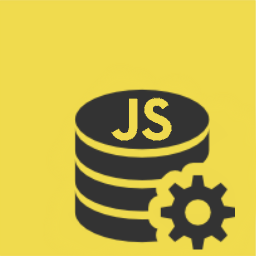js-data-express
Generate Express.js-compatible RESTful endpoints based on your JSData models.

Generate Express.js-compatible route middleware (RESTful endpoints) for js-data models. Works with JSData 3.x and newer.
Table of Contents
Quick Start
npm install --save js-data@beta js-data-express express
Here's a small sample:
import express from 'express';
import { mount, queryParser, Router } from 'js-data-express';
import { Container } from 'js-data';
const app = express();
const store = new Container();
const userService = store.defineMapper('user');
const commentService = store.defineMapper('comment');
// Other app setup code
// Variant 1
// Mount queryParser and store at "/"
mount(app, store);
// Variant 2
// Mount queryParser and store at "/api"
mount(app, store, '/api');
// Variant 3
// Mount queryParser at "/"
app.use(queryParser);
// Mount store at "/"
app.use(new Router(store).router);
// Variant 5
// Mount queryParser at "/api"
app.use('/api' queryParser);
// Mount store at "/api"
app.use('/api', new Router(store).router);
// Variant 6:
var api = express().Router();
// Mount queryParser
api.use(queryParser);
// Mount UserMapper at "/user"
api.use('/user', new Router(userService).router);
// Mount UserMapper at "/comment"
api.use('/comment', new Router(commentService).router);
// Mount api to an existing express app instance at "/api"
app.use('/api', api);
Node.js CommonJs (non-es2015)
If you're not using es2015 module
importsyntax with some sort of transpiler, you'll need to referencejs-data-expressexports more specificallyconst mount = require('js-data-express').mount const queryParser = require('js-data-express').queryParser const Router = require('js-data-express').Router
Configuring
Middleware
import express from 'express'
import { mount, queryParser, Router } from 'js-data-express'
import { Container } from 'js-data'
const app = express()
const store = new Container()
const userService = store.defineMapper('user')
const commentService = store.defineMapper('comment')
// Variant 1
// Add a middleware method for the entire store
const config = {
request: (req, res, next) => {
const userLoggedIn = req.session.loggedIn
if (userLoggedIn) {
next()
} else {
res.sendStatus(403)
}
}
}
mount('/api', store, config)
// Variant 2
// Add middleware for specific methods
const config = {
// find, findAll, create, createMany, etc.
'destroy': {
request: (req, res, next) => {
const userIsAdmin = req.session.isAdmin
if (userIsAdmin) {
next()
} else {
res.sendStatus(401)
}
}
}
mount('/api', store, config)
// Variant 3
// Add middleware for specific mapper/endpoint
const config = {
request: (req, res, next) => {
const userIsAdmin = req.session.isAdmin
if (userIsAdmin) {
next()
} else {
res.sendStatus(401)
}
}
}
// add the Router() express router instance
app.use('/user', new Router(userService, config).router)
Method Action & Response Handlers
You can apply custom logic to intercept a specific method/endpoint and response results
import express from 'express'
import { mount, queryParser, Router } from 'js-data-express'
import { Container } from 'js-data'
const app = express()
const store = new Container()
const userService = store.defineMapper('user')
// Intercept and use custom method on find (findAll, update, updateAll, etc.)
const config = {
find: {
request: (req, res, next) {
// some middleware logic for this endpoint method
next()
},
action (userComponent, req) {
// must return a Promise
return component.find(req.params.id, req.jsdataOpts)
},
toJSON: (userComponent, result, jsdataOpts) {
// some logic for toJSON, the response results
// ie: remove password field from users
delete result.password
return result
},
statusCode: 200
},
}
// mount on /user endpoint
app.use('/user', new Router(userService, config).router)
Links
See an issue with this tutorial?
You can open an issue or better yet, suggest edits right on this page.
Need support?
Have a technical question? Post on the JSData Stack Overflow channel or the Mailing list.
Want to chat with the community? Hop onto the JSData Slack channel.
Updated less than a minute ago




